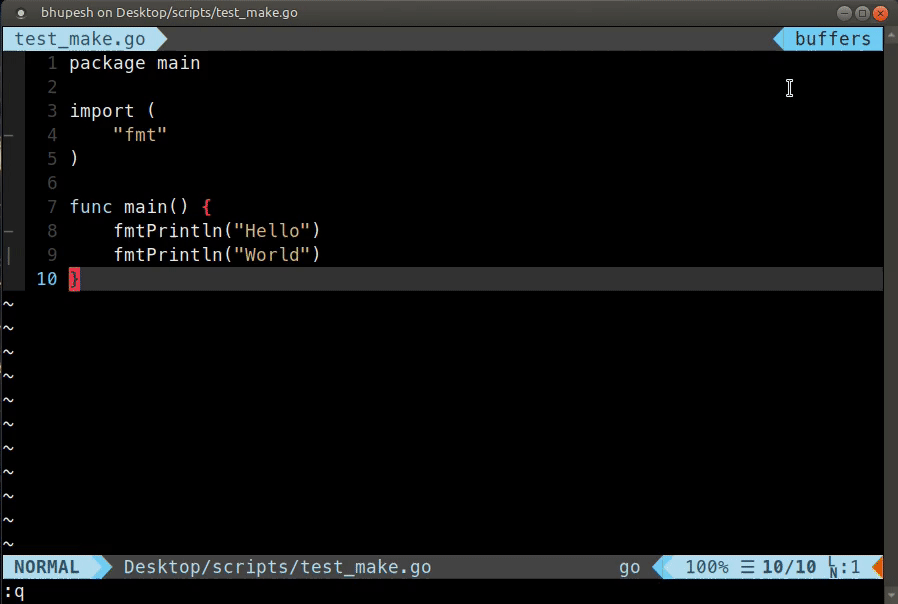Debugging Go in Vim
Using make in Vim/NeoVim can be a handy utility if you want to quickly build, run & debug programs. The make command is governed by the program set in makeprg.
By default makeprg is set to the make utility, popular in C/C++ development. Let’s see how to configure this for Go.
Before we do that, lets create a sample Go file with some errors 😅️
package main
import (
"fmt"
)
func main() {
fmtPrintln("Hello")
fmtPrintln("World")
}
If you want to run your Go programs directly:
:set makeprg=go\ run\ %
If you just instead want to build:
:set makeprg=go\ build\ %
Note: the make command will automatically create a binary with the same file (buffer) name. So you don’t need to specify the -o flag.
Now all you need to do is run :make, you can also set some accessible key bindings. I have these in my vimrc
nnoremap <A-m> :make<bar>cw<CR>
inoremap <A-m> <Esc>:make<bar>cw<CR>
To take things further, you can also combine the golint tool with go run
:set makeprg=golint\ %\ &&\ go\ run\ %
Since you are probably using multiple languages at once, you need to set the make command on each FileType.
Add this auto-command in you .vimrc or init.vim
autocmd FileType go setlocal makeprg=go\ run\ %
Make sure to use
setlocaland notset
How to fix errors
Vim provides a separate window to show errors called the error-window more formally know as the quickfix window.
Combine the make command with copen to open a quickfix window
:make | copen
This will first build the program then open a new window at the bottom, listing all the errors.
I prefer cw instead of copen since it opens the quick fix window only if there are any errors. This makes it a perfect match with the make command
:make | cw
You can press Enter (<CR>) on each error listed to directly go the error line in the program (vim will open the open the file, if it isn’t already opened)
Use cn and cp to go to next & previous item in quickfix list respectively. Add these mappings
map <C-j> :cn<CR>
map <C-k> :cp<CR>
\" I prefer these instead. Suit yourself!
nnoremap <kPlus> :cn<CR>
nnoremap <kMinus> :cp<CR>
Let’s see how all this setup works

Resources
Read the following vim manual pages for more insights:
:help makeprg:help quickfix